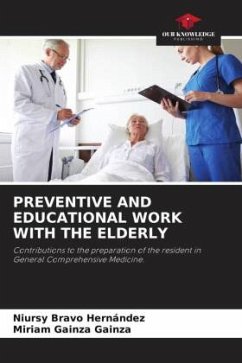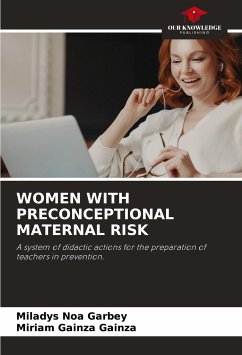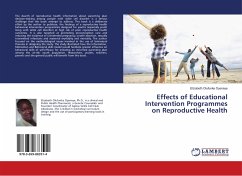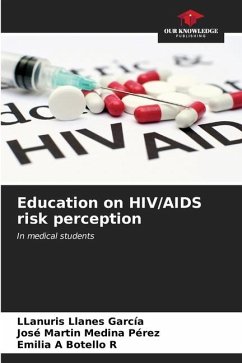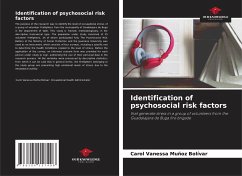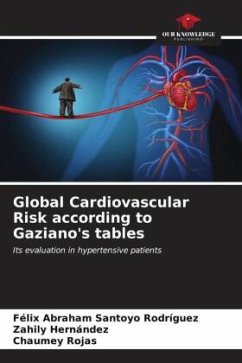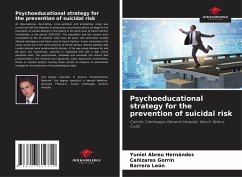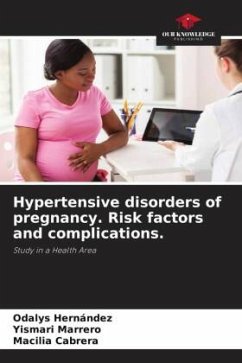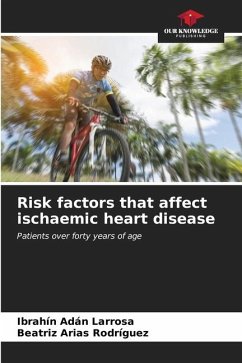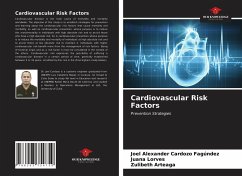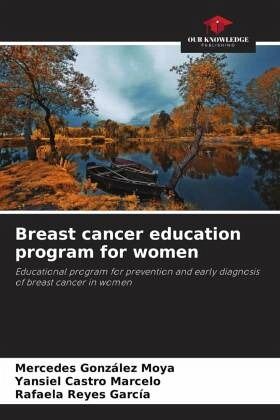
Breast cancer education program for women
Educational program for prevention and early diagnosis of breast cancer in women
Versandkostenfrei!
Versandfertig in 6-10 Tagen
40,99 €
inkl. MwSt.

PAYBACK Punkte
20 °P sammeln!
The perception of breast cancer risk is inadequate in women aged 30 years and older, of the medical office 12, in Esperanza, which undermines the control of predisposing factors and early diagnosis. To determine the effectiveness of an educational program aimed at modifying this problem, a quasi-experiment was developed from January 2019 to December 2020. The study population consisted of 54 patients, 29 of whom, selected on a non-probabilistic basis, made up the sample. 31.0% of the women were 40-49 years old, 79.3% were white, 55.2% had menarche before the age of 12, 34.5% did not breastfeed...
The perception of breast cancer risk is inadequate in women aged 30 years and older, of the medical office 12, in Esperanza, which undermines the control of predisposing factors and early diagnosis. To determine the effectiveness of an educational program aimed at modifying this problem, a quasi-experiment was developed from January 2019 to December 2020. The study population consisted of 54 patients, 29 of whom, selected on a non-probabilistic basis, made up the sample. 31.0% of the women were 40-49 years old, 79.3% were white, 55.2% had menarche before the age of 12, 34.5% did not breastfeed and the same percentage had family members with breast cancer; 69.0% had poor information on the subject, 58.6% were sedentary, 65.5% had an inadequate diet, 34.5% smoked, 58.6% considered they were not at risk of cancer, 44.8% presented stress that exceeded limits, 55.2% did not attend consultations, 62.1% had an inadequate frequency of breast self-examination and 65.5% did it poorly. The educational program promoted significant changes in modifiable cancer risk factors, with the exception of smoking, which supported its effectiveness.



